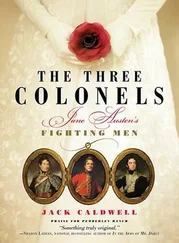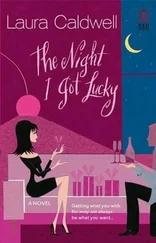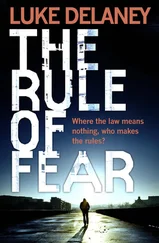Now, I've said before that the new Tom-the one who survived the terrible car wreck and lived to fight another day-was made of braver, more adventurous stuff than the shrinking violet who was old Tom. But let's be clear. Old or new, Evel Knievel I am not. For an hour after we arrived at Nassau Hall, I stood at my post in a tense sweat, fearing every shadow and twitching at every sound. Then, shortly after one o'clock, it happened. As the first of the eating clubs closed their taprooms for the night, a westward migration began of students and security officers retreating to campus. Charlie had promised that we would be well clear of Nassau Hall by then, but now he was nowhere to be seen.
I turned and hissed at Paul, What's taking so long?
But there was no response.
Taking a step toward the darkness, I called out again, squinting into the shadows.
What's he doing up there ?
But when I peered around the corner, there was no sign of Paul. The front door to tine building was ajar.
I ran to the entrance. Sticking my head inside, I could make out Paul and Charlie in a distant conversation. It's not up there , Charlie was saying. Hurry up! I said. They're coming .
Suddenly a voice rose from the darkness behind me. Campus police! Stop right there!
I turned in terror. Charlie's voice choked into silence. I must have misheard, because I thought Paul swore.
Put your hands on your hips , came the voice again. My mind fogged up. I imagined probation; dean's warnings; expulsion. Put your hands on your hips, the voice repeated, louder now. I obeyed.
For a moment there was silence. I strained to make out the proctor in the darkness, but I could see nothing. The next sound I heard was his laughter. Now shake it, baby. Dance .
The figure who emerged from the shadows was a student. He laughed again and did a tipsy rumba thrust as he approached. He was about halfway between my height and Charlie's, with dark hair that fell over his face. His tailored black blazer covered a starched white shirt with too many buttons undone.
Charlie and Paul crept warily from the building behind me, empty-handed.
The young man walked up to them, smiling. So it's true? he said. What is? Charlie growled, glaring at me.
The young man pointed at the bell tower. The clapper. They really took it out?
Charlie said nothing, but Paul nodded, still full of adventure. Our new friend thought for a second. But you got up there? I began to see where this was leading. Well, you can't just leave, he said.
Mischief danced in his eyes. Charlie was liking him better by the second. Before long I was back at my post, guarding the east door, as all three of them vanished into the building.
When they returned fifteen minutes later, they weren't wearing pants.
What are you doing? I said.
They came toward me, arm in arm, doing a little jig in their boxers. Looking up toward the cupola, I could make out six pant legs flapping from the weather vane.
I stammered that we had to get home, but they looked at each other and booed me. The stranger insisted that we go back to one of the eating clubs to celebrate. Time for a few toasts at Ivy, he said, knowing that at this hour on Prospect Avenue, pants would be optional. And Charlie was happy to agree.
As we walked east toward Ivy, then, our new friend told us stories of his own pranks in high school: dyeing the pool red for Valentine's Day; releasing cockroaches in English class when the freshmen were reading Kafka; scandalizing the drama department by inflating a giant penis above the theater roof on opening night of Titus Andronicus. You had to be impressed. He, too, as it happened, was a freshman. A graduate of Exeter, he said, by the name of Preston Gilmore Rankin.
But, he added, as I remember to this day, call me Gil.
Gil was different from the rest of us, of course. In retrospect, I think he arrived at Princeton so used to the affluence of Exeter that wealth and the distinctions it imposed on life had become invisible to him. The only meaningful yardstick in his eyes was character, and maybe that was why, during our first semester, Gil was drawn immediately to Charlie, and through Charlie, to us. His charm always managed to smooth over the differences, and I couldn't help but feel that to be with Gil was to be in the thick of things.
At meals and parties he always reserved a place for us, and while Paul and Charlie quickly decided that his idea of a social life wasn't exactly like theirs, I found that I enjoyed Gil's company most when we were sitting around a dining table or sidled up at a bar in the Ivy Club taproom, whether with friends or alone. If Paul was at home in a classroom or in a book, and Charlie was at home in an ambulance, then Gil was at home wherever a good conversation was to be had, and the rest of the world be damned. Many of the best nights I remember at Princeton were with him.
Late sophomore spring, the time came for us to choose our eating clubs-and for the clubs to choose us. By then, most of the clubs were using a lottery system to determine selection: candidates added their names to an open list, and the new section of the club was chosen at random. But a few maintained the older system, known as bicker. Bicker resembles rush at a fraternity, in that bicker clubs choose their new members based on merit rather than on chance. And like fraternities, the definitions of merit they use tend not to be the same ones you might find, say, in a dictionary. Charlie and I entered our names in the lottery at Cloister Inn, where our mutual friends seemed to be gathering. Gil, of course, decided to bicker. And Paul, under the influence of Richard Curry, an old Ivy member himself, threw caution to the wind and bickered too.
From the outset, Gil was a shoe-in at Ivy. He satisfied every possible criterion for admission, from being the son of a club alum, to being a prominent member of the right circles on campus. He was handsome in an effortless way-always stylish, never flashy; dashing yet gentlemanly; bright but not bookish. That his father was a wealthy stockbroker who gave his only son a scandalous allowance did nothing to hurt his chances. It came as no more surprise when he was admitted to Ivy that spring than when he was elected its president a year later.
Paul's acceptance at Ivy was the product of a different logic, I think. It helped that Gil, and more distantly Richard Curry, stood in his corner, making his case in crowds where Paul would never tread. But it wasn't to those connections alone that he owed his success. Paul was also, by that time, acknowledged as one of the academic luminaries of our class. Unlike the bookworms who never ventured from Firestone, he was driven by a curiosity that made him a pleasure to meet and converse with. Upperclass-men at Ivy seemed to find something charming about a sophomore who had no skill with the tired banter of the selection process, but referred to dead authors by their first names, and seemed to know them just that well. It didn't even surprise Paul when they accepted him. When he returned that spring night, soaked with celebratory champagne, I thought he'd found a new home.
For a while, in fact, Charlie and I worried that the club's magnetism would draw the two of them away from us. It didn't help that, by then, Richard Curry had become a prominent influence in Paul's life. The two had met early in our freshman year, when I agreed to have dinner with Curry on a rare trip to New York. The interest the man showed in me after my father's death had always struck me as a strange, selfish thing-I'd never known which of us was the surrogate, the childless father or the fatherless child-so I asked Paul to join us for dinner, hoping to use him as a buffer. It worked better than I intended. The connection was instant: the vision Curry always seemed to have of my personal potential, which he claimed my father shared, was realized all at once in Paul. Paul's interest in the Hypnerotomachia resurrected memories of Curry's glory days working on the book with my father and Vincent Taft, and it was only a semester later that he offered to send Paul to Italy for a summer of research. By then, the intensity of the man's support for Paul had begun to worry me.
Читать дальше












